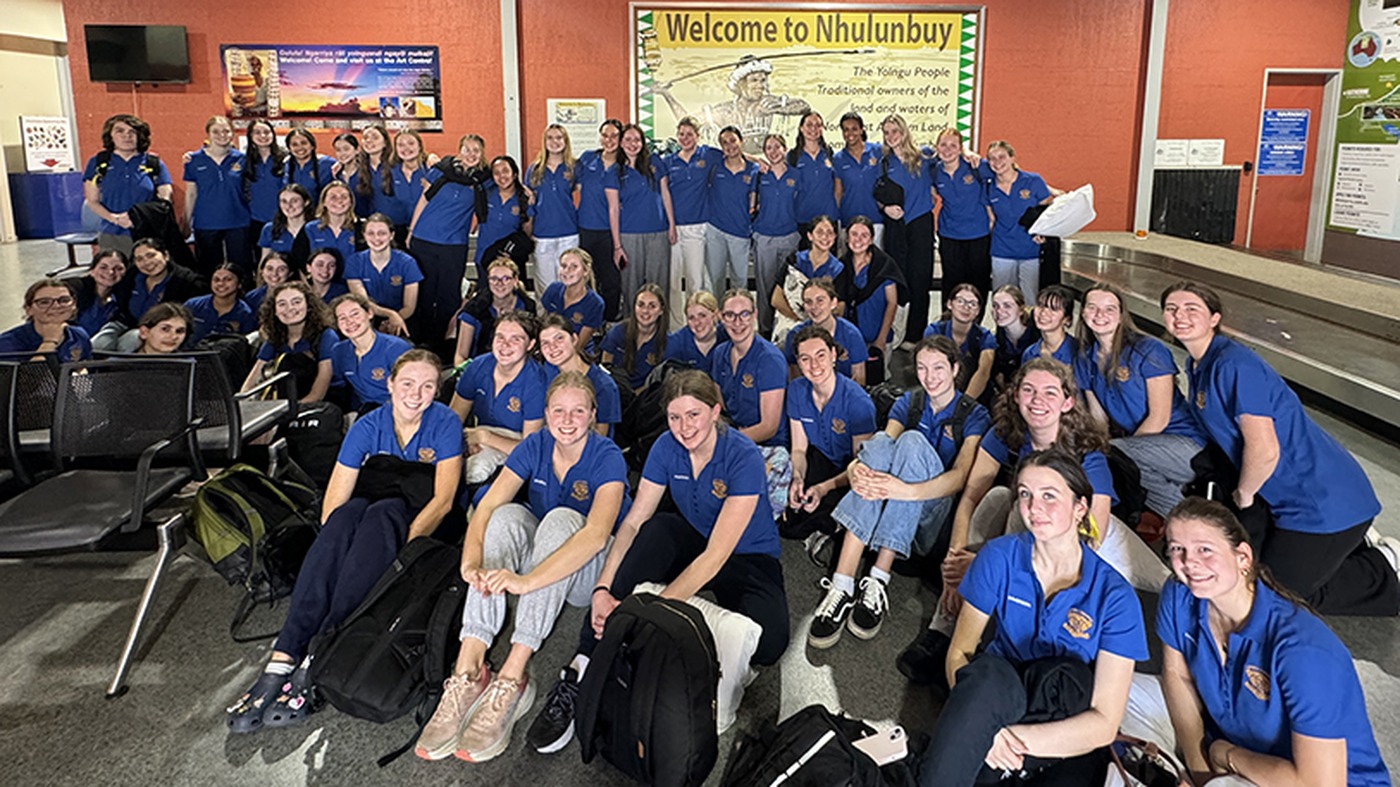The Verity Immersion experience to East Arnhem Land in the first week of the July holiday break was a journey that challenged preconceptions and prejudices, and which forged friendships, kindness and determination.
ALL NEWS
Verity Immersion to East Arnhem Land

For over 10 years, Loreto Kirribilli students have been privileged to be a part of an annual Verity immersion to East Arnhem Land. Immersion is a learning experience where Indigenous knowledge is understood, not through a glass window or on a school stage, but first-hand by being invited into the cultural processes of the Yolnju. Yolnju are the Traditional Custodians of of north-eastern Arnhem Land, Northern Territory. Yolnju culture is among the oldest living cultures on earth, stretching back over 80,000 years.
Year 11 participants, Romy and Claudia , reflected on their experience at the Senior School Assembly;
Stepping into another way of life, we were supported and encouraged - and given access to connect with Country and First Nations culture in a deeper way than I had ever anticipated. Hearing moving speeches from community leaders and witnessing cultural practices thousands of years old by elders sitting right in front of you - it was truly an extraordinary experience. This highlights the importance of cultural immersion and its distinctive value. The knowledge and experience gained is not something that can be taught to you in a classroom, you have to be there to feel it and connect with those around you, to really feel the wonder, complexity, richness and beauty of Yolngu culture. Claudia
We had learned about the intrinsic connections between Indigenous spiritual identity, Country, and language, demonstrating how the displacement and assimilation of Indigenous People disrupted intricate cultural systems. We discussed the social stigmas that Indigenous communities face, and the failures of the ‘quick-fix’ welfare system in ignoring Indigenous voices. These significant conversations, combined with valuable knowledge of language and kinship systems, are the fuel for us to become advocates for Indigenous people, a responsibility that I know I am honoured to have. Romy
Year 11 participants, Romy Elliot and Claudia Healey, reflected on their experience at the Senior School Assembly on Wednesday;
Stepping into another way of life, we were supported and encouraged - and given access to connect with Country and First Nations culture in a deeper way than I had ever anticipated. Hearing moving speeches from community leaders and witnessing cultural practices thousands of years old by elders sitting right in front of you - it was truly an extraordinary experience. This highlights the importance of cultural immersion and its distinctive value. The knowledge and experience gained is not something that can be taught to you in a classroom, you have to be there to feel it and connect with those around you, to really feel the wonder, complexity, richness and beauty of Yolngu culture. Claudia Healey
We had learned about the intrinsic connections between Indigenous spiritual identity, Country, and language, demonstrating the atrocities of the displacement and assimilation of Indigenous People, in disrupting intricate cultural systems. We discussed the social stigmas that Indigenous communities face, and the failures of the ‘quick-fix’ welfare system in ignoring Indigenous voices. These significant conversations, combined with valuable knowledge of language and kinship systems, are the fuel to become advocates for Indigenous people, a responsibility that I know I am honoured to have. Romy Elliot
ALL NEWS



